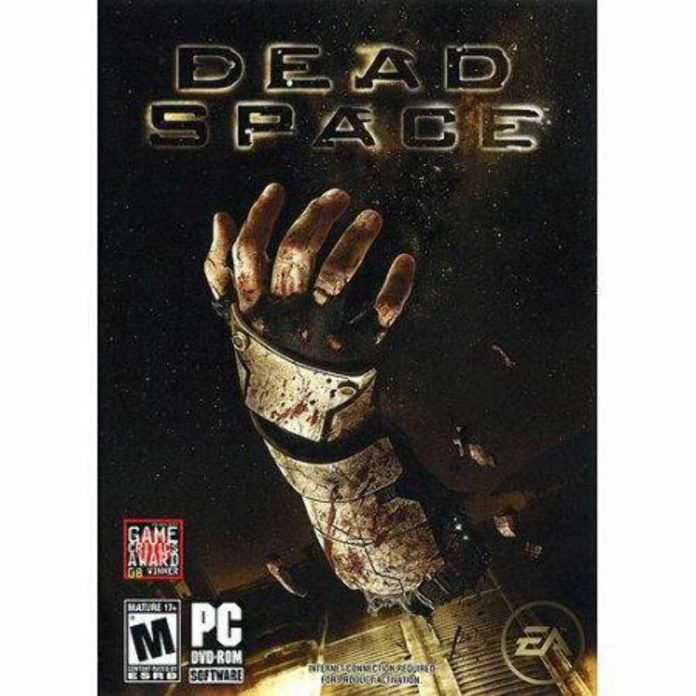As a fan of horror games, I find myself drawn to experiences that challenge my nerves and push the boundaries of storytelling. The Dead Space series, developed by EA, has consistently delivered on these fronts since its inception. In this article, I will delve into the evolution of the Dead Space franchise, exploring its gameplay mechanics, narrative depth, and the impact it has had on the survival horror genre.
The Origins of Dead Space
The first installment of Dead Space was released in 2008, and it quickly set itself apart in a crowded market of horror games. The game introduced us to Isaac Clarke, an engineer who finds himself trapped on the USG Ishimura, a massive mining ship overrun by grotesque creatures known as Necromorphs. The game’s combination of visceral horror, strategic dismemberment mechanics, and a haunting atmosphere drew players into a chilling narrative that felt both immersive and terrifying.
Gameplay Mechanics
One of the standout features of Dead Space is its unique gameplay mechanics. Unlike many of its contemporaries, where ammunition is abundant, Dead Space forces players to be resourceful. The strategic dismemberment system allows players to target specific limbs of the Necromorphs, making combat feel more dynamic and engaging. This mechanic adds a layer of strategy, as players must decide which limbs to sever to minimize incoming damage.
Additionally, the zero-gravity sections in the game create a sense of disorientation that enhances the horror experience. Navigating through these areas while battling Necromorphs keeps players on edge, making every encounter feel fresh and nerve-wracking.
Narrative Depth
The narrative in Dead Space is one of its strongest aspects. The story unfolds through environmental storytelling, audio logs, and text logs scattered throughout the Ishimura. This method of storytelling allows players to piece together the tragic fate of the crew while simultaneously deepening the lore of the Necromorphs and the Marker, an alien artifact that drives the chaos.
As I progressed through the game, I found myself captivated by the psychological horror elements. The isolation Isaac experiences is palpable, with the haunting sounds of the Ishimura amplifying the tension. The game masterfully balances its horror elements with a compelling narrative that kept me invested from start to finish.
The Evolution of the Franchise
After the success of the original game, EA quickly followed up with Dead Space 2 in 2011. This sequel expanded on the original’s mechanics while introducing new gameplay elements and a more developed narrative. I remember feeling a mix of excitement and dread as I navigated through the Sprawl, a space station that served as the new setting for Isaac’s harrowing journey.
Dead Space 2: A Step Forward
Dead Space 2 retained the strategic dismemberment mechanics but introduced new weapons and abilities, offering players more options to tackle the Necromorph threat. The game also delved deeper into Isaac’s psyche, showcasing his struggles with his past and the effects of the Marker. This focus on character development added emotional weight to the already intense gameplay.
The multiplayer mode, although not as well-received, was an interesting addition that aimed to broaden the appeal of the franchise. However, for me, the core single-player experience remained the highlight, with its blend of horror and action providing a thrilling experience.
Dead Space 3: The Controversial Entry
In 2013, Dead Space 3 was released, and it marked a significant shift in the series’ tone. While the game still had its horror elements, it leaned more towards action and cooperative gameplay. This change sparked a divide among fans, as many felt the essence of the franchise was diluted.
As I played through Dead Space 3, I noticed the increase in enemy variety and the introduction of crafting mechanics. The ability to create weapons and customize gear was a fascinating addition, but it also shifted the focus away from the survival horror roots that made the series stand out. The cooperative mode allowed players to team up against the Necromorphs, but for me, the sense of isolation that was so integral to the earlier games felt diminished.
The Remake: A Return to Form
In early 2023, EA announced the remake of the original Dead Space, reigniting excitement among fans like myself. The remake promises to enhance the graphics and audio while retaining the core gameplay that made the original a classic. As I eagerly anticipated its release, I couldn’t help but wonder how the developers would modernize the experience while staying true to the spirit of the game.
Enhanced Graphics and Audio
The original Dead Space was already praised for its atmospheric graphics, but the remake aims to take it to another level. With advancements in technology, I was thrilled to see how the team would utilize modern engines to create even more immersive environments. The promise of enhanced lighting, detailed textures, and improved sound design had me buzzing with anticipation.
Expanded Storytelling
One of the most exciting aspects of the remake is the opportunity for expanded storytelling. I was curious to see how the developers would incorporate new lore and character development while respecting the original narrative. The potential for new dialogues, interactions, and additional content could breathe fresh life into the familiar story.
The Impact on the Horror Genre
The Dead Space series has left an indelible mark on the survival horror genre. Its unique blend of action and horror, along with its compelling storytelling, has influenced numerous games that followed. Titles like Resident Evil and The Evil Within have drawn inspiration from the mechanics and atmosphere that Dead Space established.
Legacy and Influence
As I reflect on the impact of Dead Space, I can’t help but appreciate its contributions to gaming. The series paved the way for more narrative-driven horror experiences, encouraging developers to explore deeper psychological themes and more immersive gameplay mechanics. The emphasis on atmosphere and storytelling has become a benchmark for horror games, and I believe that future titles will continue to draw from the foundations laid by Dead Space.
Conclusion: A Timeless Horror Experience
In conclusion, the Dead Space series is a remarkable example of how horror can be effectively translated into gaming. From its strategic gameplay mechanics to its haunting narratives, it has captivated players since its debut. While the franchise has evolved over the years, the core elements that define its success remain intact.
As I look forward to the future of Dead Space, I am excited to see how the remake will honor its legacy while introducing new players to the terrors of the Ishimura. Whether you are a longtime fan or a newcomer, the Dead Space series offers a thrilling experience that is sure to leave you on the edge of your seat.
<iframe width="560" height="315" src="https://www.youtube.com/embed/ctQl9wa3ydE?si=dnAzRF6t2dZzai6q" title="YouTube video player" frameborder="0" allow="accelerometer; autoplay; clipboard-write; encrypted-media; gyroscope; picture-in-picture; web-share" referrerpolicy="strict-origin-when-cross-origin" allowfullscreen></iframe>




.jpg?w=100&resize=100,70&ssl=1)
